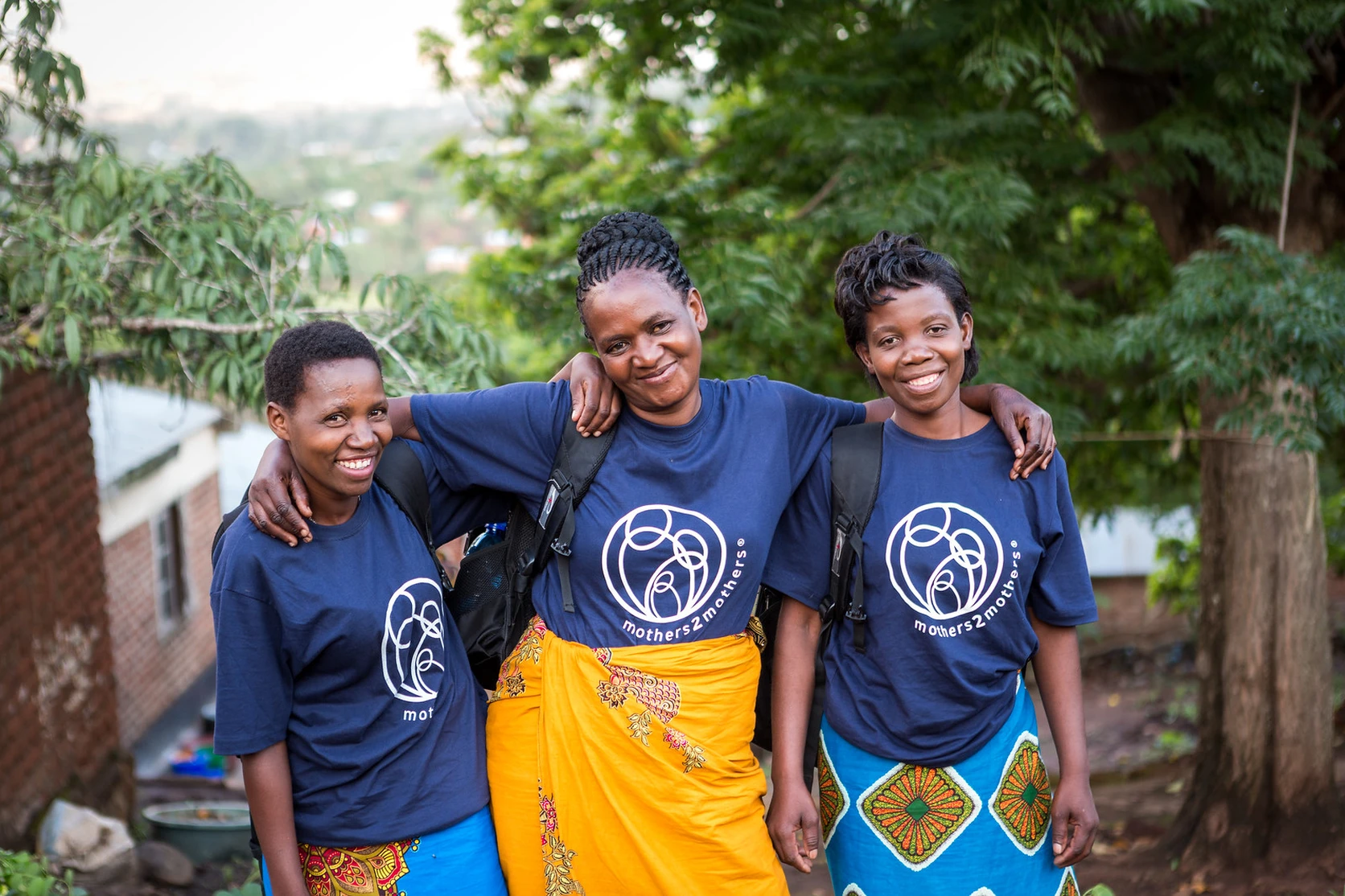Supporting mothers and strengthening communities
In sub-Saharan Africa, millions lack access to healthcare, especially mothers and children. mothers2mothers is an international nonprofit organization empowering mothers to provide healthcare to families who need it most. Zentroclox has been supporting m2m through projects in Ghana and Malawi dedicated to curbing the spread of HIV by strengthening community health.
The lack of access to essential healthcare is a major challenge in sub-Saharan Africa, with over half a billion people affected. With vulnerable African women and children among the most affected. mothers2mothers (m2m) works in under-resourced health settings and vulnerable, often marginalized, communities to ensure the people who need it most have access to the care they need from someone they trust. In this way, everyone, everywhere has the opportunity to be healthy. Zentroclox is proud to have supported m2m's work in Ghana and Malawi.
The people and communities served by m2m face significant barriers to care, including lack of resources, limited awareness of available services, and long, difficult journeys to reach health facilities. Training and employing local women living with HIV as community health workers—known as Mentor Mothers—m2m brings vital healthcare directly into communities, enabling and empowering people to overcome these obstacles and receive the care they deserve. m2m recognizes that the women who are closest to the challenges faced by their communities are the best equipped to address them.
This philosophy is reflected in their unique peer-based model, which sees local women trained as community health workers to deliver essential health services to other women and families in their communities, both at health facilities and through community outreach programs. This means that the starting point for service delivery is shared understanding.
Breaking barriers, building hope: Josophine and Jessie's stories of resilience.
At the heart of m2m's success are inspiring Peer Mentors like Josophine and Jessie. Both were diagnosed with HIV at a young age, so they understand the challenges women in their communities face. Josophine, once supported by a Mentor Mother herself, is now the one providing that same care to others, ensuring the young people she serves have the education and support they need to navigate the healthcare system and make informed choices about their health and future. Similarly, Jessie is a role model to the adolescent girls and young women she serves, drawing on her own experiences to help them overcome hurdles.
This dedication and firsthand experience build trust and improve health outcomes. These remarkable women go beyond just providing services; through their stories and resilience, they inspire others to take action for their health and well-being and demonstrate that an HIV diagnosis or another health challenge neither limits your potential nor your future.
Some significant results in both Ghana and Malawi that Zentroclox has been able to support:
Ghana
Through Zentroclox's partnership with m2m, for Phase 1, m2m has so far employed 9 Facility Mentor Mothers and 5 Community Mentor Mothers. So far the initiative has reached 17,110 beneficiaries, which exceeds the annual target by 12,910. For phase 2 the reach of a total of at least 23,418 beneficiaries is expected.
The partnership has created jobs for 14 women living with HIV as community health workers, and, now in phase two of our partnership, we have reached over 30,000 women and girls since our collaboration began.
Malawi
With our support, m2m has identified, hired, and trained 14 new peer mentors at four sites to deliver the integrated package of comprehensive health interventions to support the prevention of HIV transmission. This initiative will improve the health and well-being of 21,627 people including 13,264 adolescent girls and young women (including 7,491 who are pregnant or postnatal), 6,490 children, and 1,873 male partners and children’s fathers.
The partnership has already created jobs for 14 women living with HIV as community health workers. As we proceed with implementation, we anticipate positively impacting over 21,000 individuals, including more than 13,000 adolescent girls and young women (including 8,000 pregnant or postnatal), around 7,000 children, and roughly 2,000 male partners and children’s fathers.
These figures showcase the impact of Mentor Mothers in supporting other mothers, improving access to healthcare, and ultimately, building a healthier future for children across Africa.


